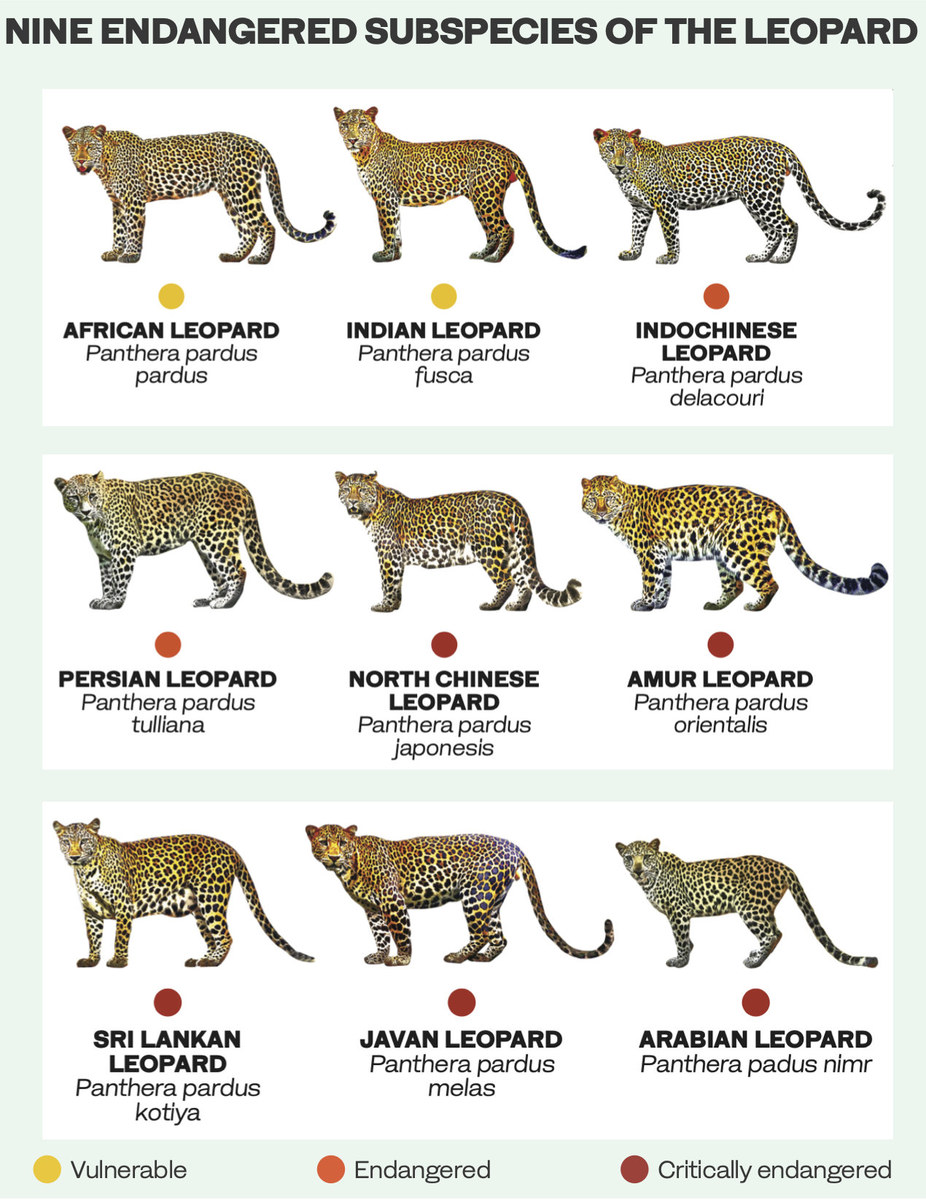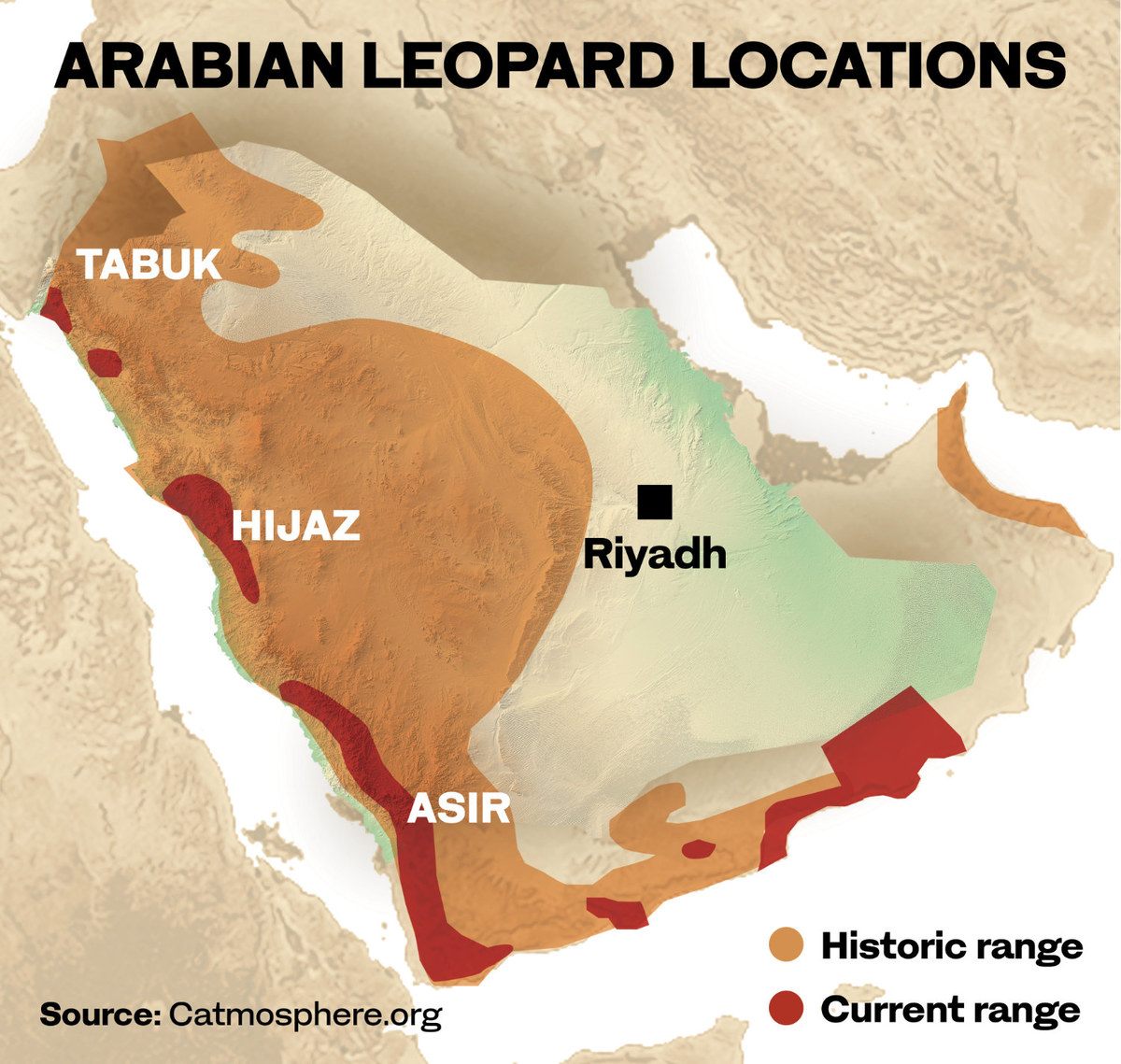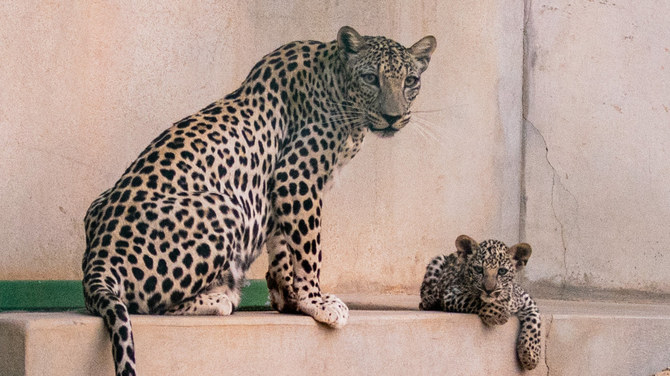RIYADH: Conservation experts from Saudi Arabia’s Royal Commission for AlUla have this year succeeded in breeding seven Arabian leopard cubs in captivity in the hope of increasing the population of the critically endangered species in the wild.
There are thought to be as few as 120 Arabian leopards left in the wild, with approximately 20 of them in Saudi Arabia, confined primarily to the isolated southwestern mountains of Asir and the Hijaz, making conservation efforts even more urgent.
“The captive population at the RCU facility is 27 healthy animals,” Stephen Browne, the commission’s vice president of wildlife and natural heritage, who works closely with the conservation program, told Arab News.
Breeding programs such as the RCU’s are considered essential to boosting the number of Arabian leopards in the wild, which have been declining because of human encroachment on vulnerable habitats and the poaching of their natural prey.

Browne said: “The last estimate had 200 animals (in the wild) a few years ago, so they have gone down very dramatically, very quickly, to barely a few animals.
“In many of the areas where they formerly occurred, like the UAE and Egypt, they are now extinct, and they are only found in very few isolated areas in western and southwest Saudi Arabia, Yemen, the very high rugged mountains of Yemen, and Oman.”
When conservationists are confident the animals will have a good chance of survival, they intend to release the RCU breeding program’s captive population into the wild. This will depend largely on changing human behaviors.
On the potential threats to Arabian leopards in the wild, Browne added: “There’s a whole combination of factors, from hunting as retaliation for the loss of livestock to trophy hunting or catching them for the illegal wildlife trade.”
Hany Tatwany, a Saudi environment consultant, who previously worked at the National Center for Wildlife and later as president of the RCU’s Global Fund for the Arabian Leopard, noted that hunting was only one of the dangers the animals faced in the wild.
He said: “There are several reasons, but most of them are related to human behavior, such as overhunting the prey that the leopard eats or destroying the environment in terms of agriculture, urban expansion, and road construction.
“There is also the targeting of leopards to protect livestock, or, unfortunately, the leopards are hunted as a way of showing off.”

Leopards originated in Africa before spreading to the Arabian Peninsula and across Asia. By adapting to different climates, terrains, and altitudes, they evolved into distinct subgroups that became better suited to their respective habitats.
Browne pointed out that the Arabian leopard, for instance, had adapted well to cope with the hot, dry climate of the Middle East.
The elusive big cats are also well suited to rugged terrains and have been found at elevations ranging from sea level to more than 2,000 meters, making them highly adaptable and able to survive in arid and semi-arid environments.
DID YOUKNOW?
Saudi Arabia and the UAE have programs to breed and protect Arabian leopards. The Kingdom’s captive breeding center is in AlUla and is managed by the RCU.
After 13 weeks of pregnancy, leopards give birth to a litter of between two and four cubs, typically in caves. Cubs are normally born with closed eyes, which open after a week to nine days.
Human activity has depleted leopards’ larger natural prey such as gazelle, forcing the big cats to switch their diet to smaller animals and livestock, including goats and sheep.
While releasing a predator into the wild may seem counterintuitive to protecting wildlife, Tatwany said that every organism, wherever it featured in the food chain, served a vital role in a balanced ecosystem.
“Predators come at the top of the pyramid. The health of the ecosystem is also evaluated through predators, because with the disappearance of predators, imbalance occurs and many things change, either with the increase of fungi, for example, or the growth of other alternative species that lead to environmental imbalance,” he added.

Beyond their importance as part of a healthy and balanced ecosystem, the distinctive creatures also hold immense cultural significance. Browne said that saving them from extinction was a key test of humanity’s stewardship of the natural world.
“It has been mentioned in stories, poems, and works of art for thousands of years. If humans are losing an iconic species like the leopard or aren’t working toward protecting it, then why should they worry about mice, slugs, or scorpions?
“If people did not worry about leopards, if they are prepared to lose them, then they are prepared to lose the ecosystem,” Browne added.





































